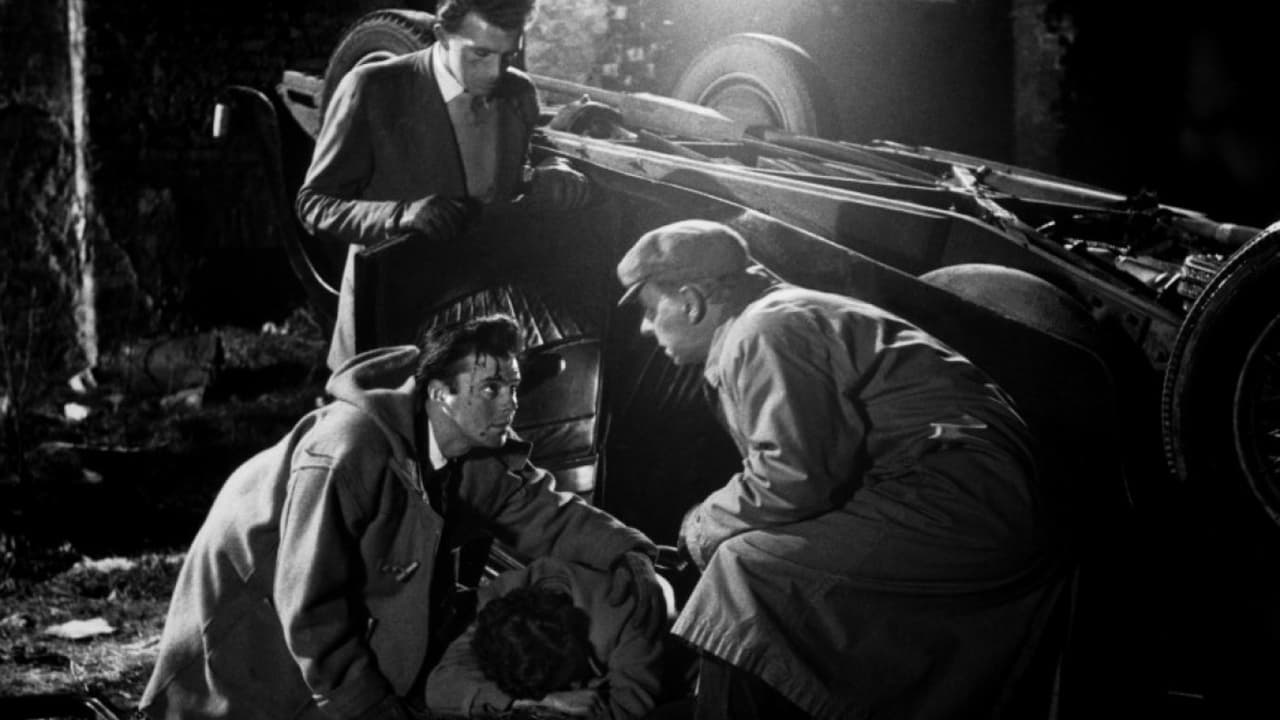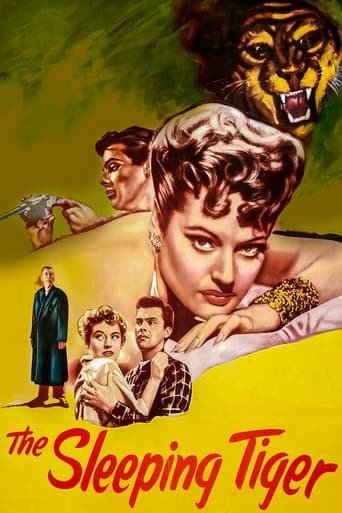

Each character in this movie — down to the smallest one — is an individual rather than a type, prone to spontaneous changes of mood and sometimes amusing outbursts of pettiness or ill humor.
... View MoreIt really made me laugh, but for some moments I was tearing up because I could relate so much.
... View MoreThere is, somehow, an interesting story here, as well as some good acting. There are also some good scenes
... View MoreThe movie is made so realistic it has a lot of that WoW feeling at the right moments and never tooo over the top. the suspense is done so well and the emotion is felt. Very well put together with the music and all.
... View MoreAn overdone psychodrama whose twists and turns require some unfortunate stretches.Too bad the plot ironies finally drown in a tidal wave of over-emotion. Apparently, ace director Losey couldn't tone down Smith's carpet chewing finale that unfortunately overwhelms what's gone before. At the same time, we're hit over the head with the finale's sleeping tiger irony. I think the audience can put two and two together without that billboard contrivance. Seems Glenda (Smith) is the highly repressed wife of coldly intellectual Dr. Clive (Knox), who's been neglecting her emotional needs as he pursues his writing and research. In that same pursuit he takes proven felon Frank (Bogarde) into his household in order to test his theory of criminal reform. Clive's main reform tool is to excuse Frank's misbehavior whether criminal or moral in order to get at the causes of Frank's disordered psyche. Needless to say, such indulgences cause all kinds of problems, both inside the household and out.As Doc's indulgences mount, it seems that an optimistic ideal is being mocked. Namely, that there are no bad people, only mistreated kids who then grow into criminal behavior. For example, while in the Doc's "care", Frank robs a jewelry store, and maybe worse, spits on Clive's generosity by seducing wife Glenda. In return, the Doc simply ignores the mounting transgressions. To me, that willingness, which also puts people in Doc's community in danger, looks like a mockery of a liberal brand of Freudianism then in vogue. It may be a provocative idea for the film to play with. Nonetheless, the tiger upshot undercuts that optimism, at the same time it clouds the film's one very real tragedy.Anyway, Bogarde comes through with a nicely modulated turn, while Knox deadpans through thick and thin, even as Smith does the sleeping tiger to an ear-splitting roar. Apparently the movie was filmed more cheaply abroad at a time when TV was eating into movie profits. So, on a small budget, don't expect much in terms of scenery or action, though noir master Losey does work in some atmosphere. To me, the story's highlight and genuine tragedy is downplayed, but is present nevertheless if you think about it. As the 90-minutes stands, it's something of a disappointment given the talent involved.(In passing-depending on the camera angle there are times when it appears Frank and Glenda resemble Lucy and Desi from TV's iconic I Love Lucy. Then again, maybe I had one too many beers!)
... View MoreThis isn't a high dollar film with lots of flash, instead it's a pretty interesting B-film that is effective in its story and some of the filming techniques. It's played out in a film noir-ish style.It's about a man, Frank Clemmons, who has a criminal past and instead of jail/prison time he's living in the home of his psychotherapist, Dr. Clive Esmond, at his doctor's request. Dr. Esmond feels he can help cure Frank of his past problems. Dr. Esmond's wife, Glenda, has a "Sleeping Tiger" within herself and that tiger is awakened when she meets Frank. Frank and Glenda start having an affair. The closer to curing Frank, the more crazy Glenda becomes for the Tiger has awakened within her - she is hungry for a wild life that she feels only Frank can give her.The story is pretty good - it gets a bit boring at times because some things are dragged out to long but it's enjoyable to watch overall.6.5/10
... View MoreI enjoyed reading the other contributor views on this board for "The Sleeping Tiger", particularly since I don't know anything about director Joseph Losey's political leanings and his team-ups with actor Dirk Bogarde. Taking the picture at face value, I had some trouble right from the get-go with Dr. Clive Esmond's (Alexander Knox) willingness to bring a common street thug into his home for the purpose of rehabilitation. Considering the doctor's age, one would surmise that he would have had enough time in his professional career to figure out that this strategy would have a predictably low success rate. After catching Frank (Bogarde) and icy veined wife Glenda (Alexis Smith) in the kitchen together, you would think he would have 'gotten it', but he still remains strangely accepting of his patient's living arrangements.Still, it's kind of fascinating to see these characters go through their paces. London's Metro Club was the perfect destination for Glenda to experience the 'other' side, enticed by Frank's admonition to "go downstairs and put on something..., a little cheaper". For someone who despised rude behavior and bad manners, Glenda willingly casts aside those reservations for a veritable walk on the wild side because of her boring and stuffy marriage to Clive. All fairly predictable.Actually it's those Metro Club scenes that sparked the most interest for me, a jazzy precursor to the decade later birth of the British sound. You have to keep an eye on some of the dance partners who appear downright goofy, and was it just me, or did Frank's chummy squeeze from the Metro wear the same dress on three different occasions. Just an observation.Well even if the story stretches credibility to the breaking point, it's bound to hold your interest in a train wreck sort of way. I really had to groan when the finale brought the sleeping tiger connection to the title in a visually jarring way with the crash through that road sign. Does anyone have ANY idea what that sign was all about?
... View MoreA more apt title would have been The Sleeping Tigress, for it's Alexis Smith's performance that holds this movie together and lends it erotic friction. Despite her old-money looks and regal carriage, Smith numbered among the many talents which Hollywood mis- and under- used. She claimed attention in two late-forties Bogart vehicles, Conflict (where she was good) and The Two Mrs. Carrolls (in which she was even better, and held her own against Barbara Stanwyck). But most of her movie career consisted of mediocre roles the ones the star actresses turned down or had to refuse owing to other commitments. (It wasn't until Stephen Sondheim's Follies on Broadway in the 70s that her own star shone).In this film from Joseph Losey's English exile following the Hollywood witch hunt, she plays the bored wife of psychotherapist Alexander Knox (and with him pottering around the house, who wouldn't be bored?). Bleeding-heart Knox takes a troubled young man with a prison record (Dirk Bogarde) under his roof in hopes of performing a therapeutic Pygmalion job on him. At first Smith acts snooty, then grows intrigued, and finally throws herself at Bogarde with pent-up abandon. Comes the crunch as Knox, in a three-minute Freudian breakthrough reminiscent of Lee J. Cobb's instant rehabilitation of William Holden in The Dark Past, turns the lying, thieving, abusive Bogarde into a contrite milquetoast. When Bogarde then bids her farewell, Smith careens into dementia every bit as swiftly as Bogarde was healed and feigns an assault in hopes that Knox will defend her `honor' with that gun every therapist keeps in his desk drawer....It's a lame story that might have been more convincing in an American context; the London setting and British conventions (in particular Knox's) stifle it. Bogarde started out playing this sort of charming wrong'un but isn't especially memorable here (except for his towering pompadour that must have been borrowed from Mario Lanza). But Smith's feral feline makes The Sleeping Tiger worth the ticket price.
... View More